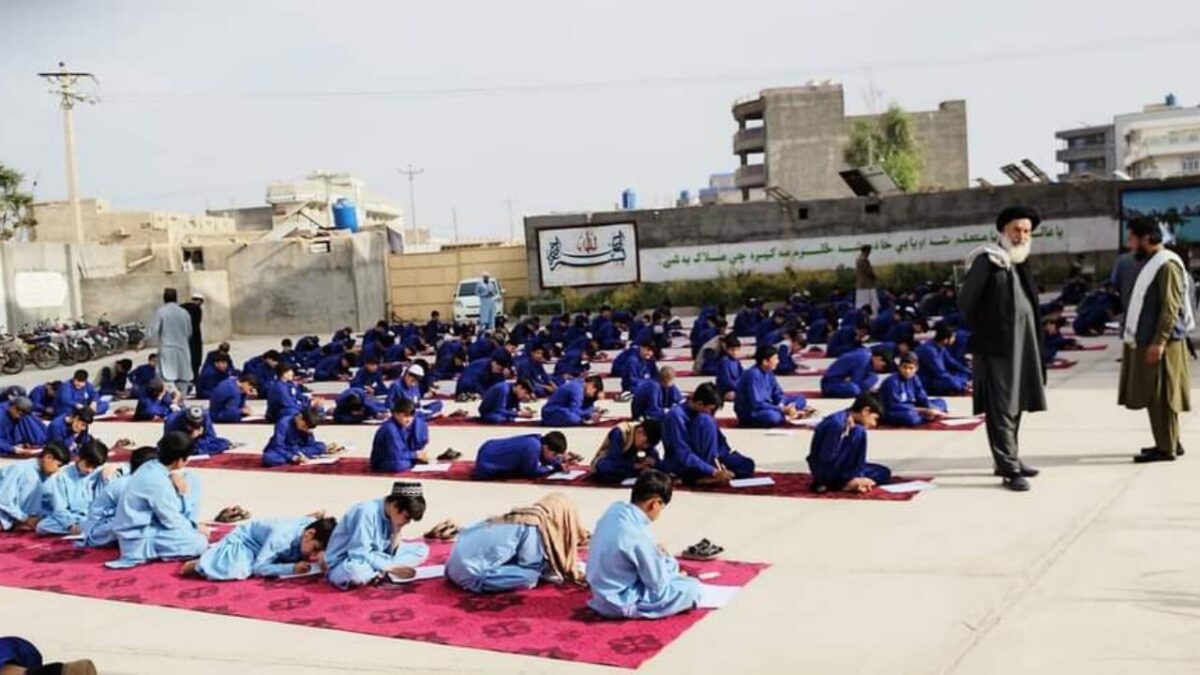KABUL, Afghanistan — Taliban have made religious education focused on their new morality law known as “Law of Commanding Right and Forbidding Wrong” mandatory for students in the western province of Farah, according to local sources.
In cooperation with a private school and the province’s department overseeing the enforcement of the law, the Taliban’s education officials recently administered a competitive examination on the subject, sources said.
This measure is part of the Taliban’s broader initiative to impose their strict interpretation of Islamic principles throughout Afghanistan.
Similar steps have been implemented in other regions. Last month, the Taliban’s governor’s office in Daikundi announced that government employees there would undergo mandatory instruction in the law as part of their official duties.
The controversial regulation has provoked considerable criticism both within Afghanistan and internationally.
The law prohibits women from appearing in public or having their voices heard in settings where men are present, labeling these actions as “haram,” or religiously forbidden. Additionally, the law omits any reference to girls’ right to education, a decision that has sparked further outcry.
Most recently, Khalid Hanafi, the Taliban’s Minister for Commanding Right and Forbidding Wrong, asserted that even adult women’s voices are “haram” for other adult women to hear, a declaration that has drawn backlash from religious scholars. Many religious leaders view the Taliban’s rulings as a severe and unorthodox interpretation of Islamic teachings, highlighting what they describe as a departure from traditional Islamic values.
The Taliban have yet to address the criticism directly, while concerns continue to mount over restrictions on women’s rights and public life under their rule.





